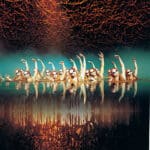I have always enjoyed a good pub quiz, but it’s only recently that I’ve started writing quizzes myself. I’ve been compiling the Traveller quiz (subscribers only) for the Sydney Morning Herald and the Age for just under a year, and set up Geograquiz, my own site for travel-themed quizzes.
The process of doing this has made me think more about the art of setting up a quiz and, as part of that, how to write a good question. Unsurprisingly, I have developed some strong opinions on the topic.

Dull quiz questions
The main type of quiz question is a straight know it or you don’t affair. For example: “Which country is Mt Kilimanjaro in?”
That’s fine as a question, but it’s not very playful. It’s a straightforward test of knowledge, and the answer is very easy to look up on your phone.
Depending on your audience, it may be too hard or too easy. If too hard, it is adjustable. Ask in which African – or East African – country you’d find Kilimanjaro. Then, at least, they’ve got a few narrowed-down options to pick from.
Improving a basic trivia question with extra information
Adding extra information is, I find, a good way of improving a quiz question. Kilimanjaro is the highest mountain in Africa, so why not work that in? “In which African country would you find Kilimanjaro, the continent’s highest mountain?” gives a little more to go on.
Similarly, offering a second route to the right answer within the question stops it being entirely know it or you don’t. “In which African country would you find Kilimanjaro, the continent’s highest mountain, and the wildlife migrations on the Serengeti?” gives quizzers a second bite of the cherry. They might not know where Kilimanjaro is, but they do know where the Serengeti is. Or, even better, they’re not sure on either, but have a rough idea, and can get to Tanzania via a process of elimination.
Giving more than one route in helps quizzers feel like they should be able to get it, which is important for maintaining interest.
The two disparate routes trick
The questions I really like, however, make quizzers combine knowledge from different areas either to get the answer or be sure they’re right. For geography quizzes, I really like throwing in song lyrics or movie locations.
“In Africa by Toto, the line: ‘As sure as Kilimanjaro rises like Olympus above the Serengeti” refers to which specific country’?” is a much more fun variation on the question. It’s a geography question dressed up as a music question, and it’s silly enough to make people laugh.
Ideally, though, you’ll need both the music knowledge and geography knowledge to be certain. “Which Tanzanian mountain ‘rises like Olympus above the Serengeti’ according to Africa by Toto?” hits that spot nicely. You’d probably pick Kilimanjaro as the only Tanzanian mountain you’ve heard of, but you need to run your brain through the lyrics of Africa to be sure.
More to the point, the correct answer to that question isn’t easily Googlable.
Providing two disparate routes brings in a key component of quizzes – intelligent guesswork. “Where does beef rendang come from?” is know it or you don’t. “In which country would you pay for your beef rendang in rupiah?” makes it both a food and currency question, and you feel you ought to know at least one of the components.
Why link questions are great in pub quizzes
Providing multiple routes to an answer also brings in my favourite sort of question – the link question. These are when you have three or more different things and have to pick the link between them.
For example: “What colour links a county in California, a river in South Africa and the top stripe of the Indian flag?
You feel like you should get at least one of those things, probably two, but you need the third to be absolutely certain. It’s the sort of question that will get a team discussing amongst themselves.
It’s even better if you pull in different knowledge fields. “What colour links a county in California, a notoriously violent Stanley Kubrick film and the top stripe of the Indian flag?” makes it about geography, films and flags.
Other examples might include: “What celestial being links a London underground station, a Venezuelan waterfall and a Robbie Williams song?” Or: “Which Harry Potter actress’s name can you get by adding the capital of Montana to the surnames of Led Zeppelin’s drummer and the Egyptologist who discovered Tutankhamun’s tomb?”
The QI approach
Another approach to a good quiz question is to take a piece of information you find interesting, then wrangle it towards a guessable answer. Call it the QI (or Quite Interesting) approach.
For example, I recently discovered that Fred Astaire, Marlon Brando, Gerald Ford and Malcolm X were all born in Omaha.
“Which city were Fred Astaire, Marlon Brando, Gerald Ford and Malcolm X born in?” doesn’t work, as people are highly unlikely to know.
“Which Nebraska city were Fred Astaire, Marlon Brando, Gerald Ford and Malcolm X born in?” is better as it’s basically a case of naming a city in Nebraska, but packing in interesting trivia.
Even better, however, would be adding a second disparate route. “Which Nebraska city, birthplace of Fred Astaire, Marlon Brando, Gerald Ford and Malcolm X, gave its name to one of the D-Day landing beaches in Normandy?” has multiple routes to getting the right answer. But, for most people, it’s a tough question that still needs a lot of working out or guesswork.
Any suggestions?
These are a few of my theories on making a good quiz question, but I’m happy to hear others. Feel free to share your own suggestions in the comments.

